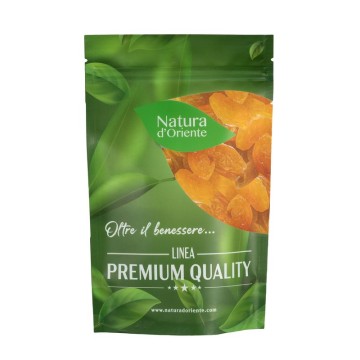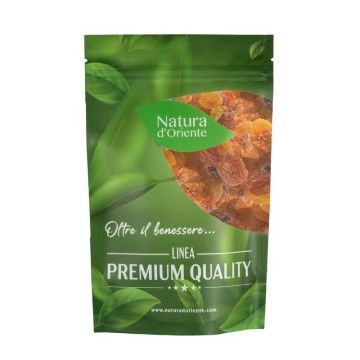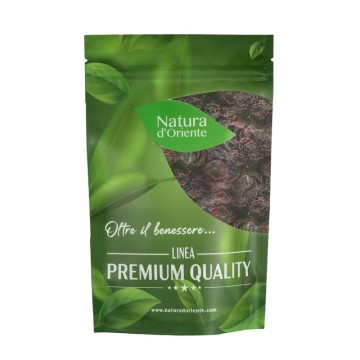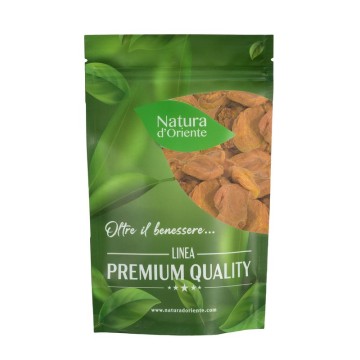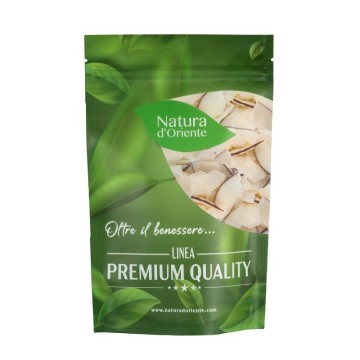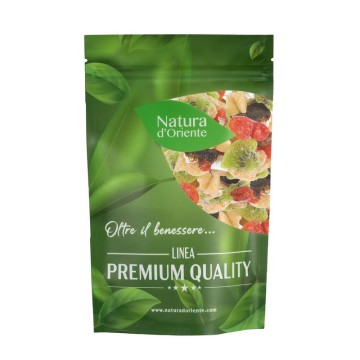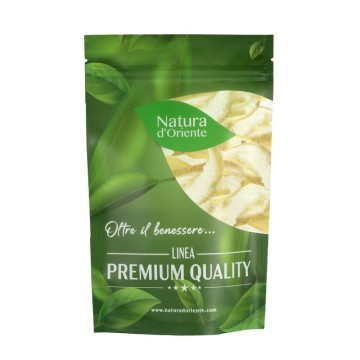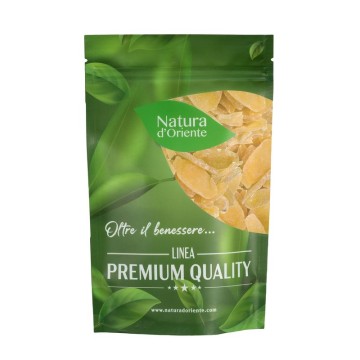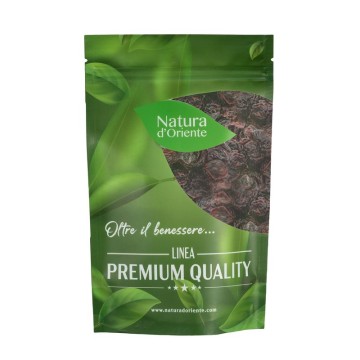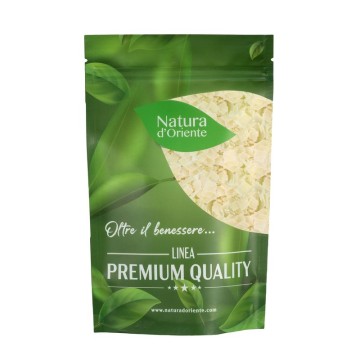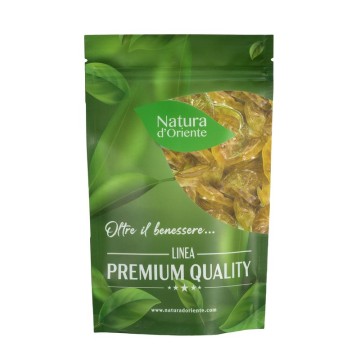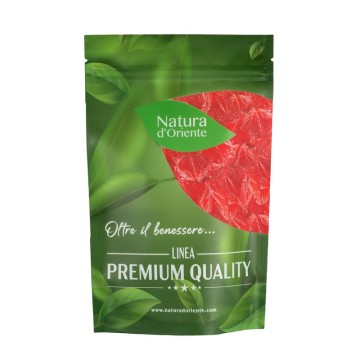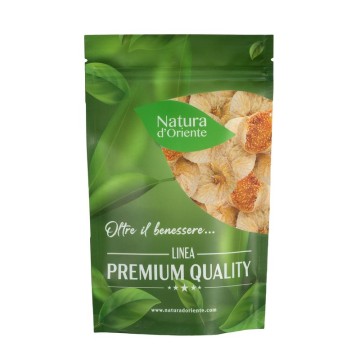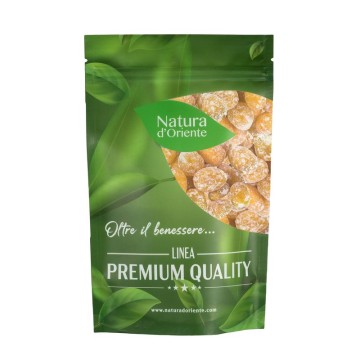Dried Strawberries
The deliciousness of strawberries is famous, but we know that these delicious and nutritious fruits do not stay fresh for that long. For this reason, once their season is over, the consumption of the dehydrated version of strawberries is very popular, which can be enjoyed at any time of the day. Even their benefits for our well-being are maintained with drying, let's see what they are.
Dried strawberries with apple juice: properties and benefits
These dehydrated fruits are excellent for a balanced diet, because they are foods without added sugar, without cholesterol, with very little fat.
On the contrary, dried strawberries allow you to take in various nutrients that are beneficial for the body, such as fiber and proteins, vitamins and minerals.
The fibers contained in dehydrated strawberries are excellent for digestion, and with the right doses they can be used for their laxative, diuretic and purifying (detoxifying) properties.
Inside dried strawberries, you will find an great supply of vitamin C, and a fair amount of calcium.
Vitamin C is an essential element for strengthening the immune system, and among the foods in which this vitamin is abundant, strawberries are a delicious as well as healthy choice.
In terms of well-being, in addition to vitamin C, dried strawberries contain substances such as ellagic acid and some natural antioxidants, flavonoids that help keep bad cholesterol low in the blood.
Antioxidants play a useful role in reducing inflammation in the body, and help keep cells protected from aging factors, with an improvement in the beauty of the skin.
The composition of strawberries can act as an anti-aging function, by stimulating the production of collagen, which gives elasticity to the skin.
Strawberries have a very high antioxidant power, at the top of the special USDA (The United States Department of Health) ranking. Department of Agriculture) on foods that keep you young.
In the dried version, strawberries are also a source of minerals such as manganese and potassium – elements that play an essential role in regulating normal cellular function in the body, as well as for heart health.
Among the other components that strawberries are rich in are iron and magnesium, recommended in correct doses for those who suffer from rheumatism and are subject to colds.
They also have a high phosphorus content, as well as xylitol – which prevents the formation of dental plaque and kills the germs responsible for bad breath.
Remember that the health benefits of strawberries are not affected by the drying process. The nutrients are maintained, and many are useful for the well-being of our body.
Origins and History of Cultivation
The strawberry is a succulent fruit known for thousands of years, but in Europe strawberry plants have always remained wild and uncultivated until the Renaissance period.
Wild strawberries were famous, highly appreciated in ancient Rome, where they were considered aphrodisiac fruits, used for the celebration in honor of Adonis. Legend had it that the tears shed by Venus on his tomb (he was killed out of jealousy by Mars), had been transformed into strawberries.
The shape and color of strawberries, which resemble a heart, became the main characteristics in the Middle Ages. The wild strawberry was called "heart fruit", fruit of Venus capable of sweetening the passions of love. At the court of the French kings they were at the center of love games: the lady invited the knight to a nocturnal meeting, eating strawberries enriched with sugar and cream.
Strawberry cultivation began right here in France, with the gardeners of Louis XIV. They took wild varieties from the woods to replant them in the gardens of Versailles, using a method that was successful until some extra-European strawberry species arrived in the eighteenth century. It was Amédée Frézier, who during a mission collected white strawberry plants in Chile.
In this period, full-cycle cultivation began, and two wild American species were crossed, the Chilean one and the Virginian Fragaria. This is how the “large” strawberry (compared to wild strawberries) was born, the Fragaria Ananassa that we consume greedily today.
Always used in pastry making, since the 1980s the strawberry has been exalted through Nouvelle Cuisine, which by modifying the traditional concepts on the associations of flavours and aromas, has used strawberries in an original way.nsolito. A fruit that has also been successful as an ingredient in risotto and a sweet and sour sauce created to flavor roasts and meat dishes.
Plant and Fruit
The strawberry comes from the plant of the genus Fragaria, which is part of the rose family – Rosaceae. A shrub that produces succulent, red fruits and tiny white flowers.
There are over twenty species of strawberries, as well as numerous hybrid strawberries and cultivar varieties. The most widely grown species of strawberry plants is Fragaria x Ananassa, also called Garden Strawberry.
With careful cultivation, the plants can last up to 5 years, but most farmers perform an annual harvest, replanting them every year; also because strawberry plants need fertile soil.
To develop, crops require 8 to 14 months of maturation, and the fruits in reality, from a botanical point of view, are only the seeds on the surface of the strawberry, the so-called achenes.
The part we eat is the aggregate fruit, or false fruit, which in the red part is the enlarged receptacle of the flower.
The strawberries commonly grown today are hybrids resulting from the crossing between European varieties and American varieties.
Nutritional values of dried strawberries
Their caloric intake of 348 Kcal per 100 grams, also provides several useful micronutrients.
Dried strawberries without added sugars provide a lot of fiber (2.3%), very little fat (0.57%), a good supply of proteins (1.7%) vitamin C (about 5 mg per 100 g).
Strawberries are an energy food, which also have a good availability of minerals such as potassium (about 1600 mg per 100 g), iron (about 2 mg per 100 g), calcium (about 200 mg per 100 g), manganese and phosphorus.
How to consume dried strawberries dehydrated in the kitchen or as a snack
Dried strawberries can be used in various ways, also thanks to their less sweet flavor compared to strawberries with added sugaro.
A great way to include them in your daily diet is to add a portion to your breakfast cereals, or as a dried fruit snack curbs hunger between meals.
Dehydrated strawberries are a healthy alternative to sweets, equally satisfying but with more healthy properties. They are excellent before and after sports training as an energy snack.
They are an appetizing ingredient for desserts, such as muffins, cakes, cupcakes or ice cream as a top decoration. Dehydrated strawberries are excellent for flavoring plain yogurt or some semifreddo. Up to becoming ingredients for sweet or savory dishes, cocktails and aperitifs.
When ground, they become strawberry powder to add to smoothies, milk or vegetable drinks.
Dried strawberries: side effects and contraindications
There are no particular warnings for the consumption of strawberries, but it is necessary to examine whether there is a possible intolerance or allergy to the food, which is not so rare. Strawberries actually contain a certain amount of histamine, a substance that can cause nausea and itching.
Like many dried fruits, dehydrated strawberries have a sugar content that makes excessive doses inappropriate for those suffering from diabetes.
Even if in the dried strawberry version, these glycemic values are lower.
For those who regularly take heart medications, the excessive potassium in strawberries could be harmful to the kidneys, so it is best not to exceed the minimum quantities.
It is a food rich in fiber, therefore, in large doses, strawberries could cause a laxative effect on the intestine.
![]()

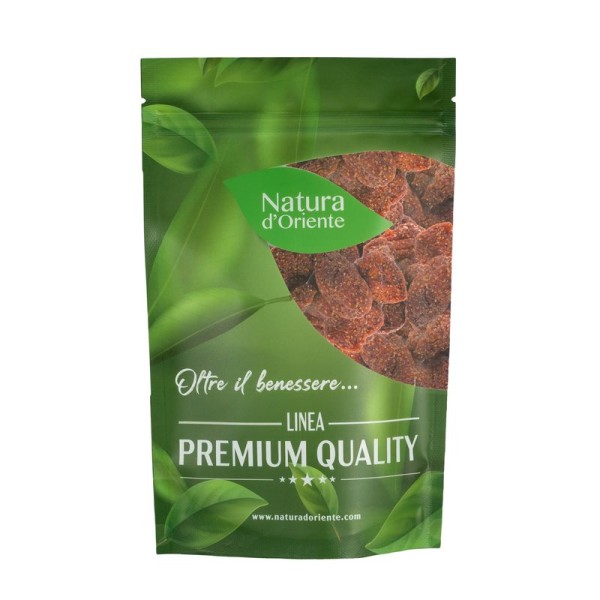









 No reward points for this product.
No reward points for this product.

